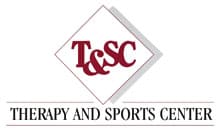Hockey is a fast and exciting sport that requires you to be well-conditioned and agile. Players must be speedy enough to keep up with other players, strong enough to defend themselves, and coordinated enough to hit the puck so that it flies across the ice and into the goal. However, since hockey is a contact sport, hockey players can be easily injured. As a result, hockey leagues have implemented measures to reduce injury, such as developing better standards for protective equipment, and hockey is safe when players condition and train properly, such as with hockey physical training at Therapy and Sports Center.
However, injuries can still occur unexpectedly, such as when players are hit by other players, fall on the ice, or overexert themselves. Here are some common injuries hockey players face, tips on how to treat them, and how to avoid them in the future.
Common Hockey Injuries
Dislocated Shoulders
Hockey players can easily dislocate their shoulder. Some common causes of a dislocated shoulder are when you are hit by another player or overextend your shoulder when swinging your stick. When you dislocate your shoulder, the ball of your shoulder joint pops out its socket, causing shoulder pain, numbness, and swelling. In some cases, you can guide the ball back into the socket yourself, or have a doctor do it for you, and you will be able to return to playing after some time in a sling.
However, once you dislocate your shoulder, you are at a higher risk of dislocating it again. If you repeatedly dislocate your shoulder, you will likely need surgery to reattach it. Having a physical therapist to assist with the healing process by rebuilding up your strength and range of motion will help you make sure that you do not dislocate your shoulder again.
Back and Hip Injuries
The type of leg movement needed to ice skate and the forward posture of ice skating means that hockey players are at a higher risk for back and hip injuries. This usually results in muscle pain located in your back and hips, and can be caused by a variety of reasons. You might be overexerting yourself during practice, developed improper posture while skating, or simply not properly warming up before you practice.
Mild muscle pain is easily treated with ice, rest, and over-the-counter pain medication. However, if you want to reduce discomfort associated with muscle pain or if the pain is so severe it hinders your ability to play, a physical therapist can help assess if the pain is stemming from a more serious issue, treat it, and help you train so that you will become less prone to muscle pain.
Wrist and Hand Injuries from Hockey
Your hands and wrists are delicate and can be easily injured, especially when playing hockey, as they can be injured when using your stick or when you are hit by another player or their equipment. You can also injure your wrists by using them to break your fall on the ice or to brace yourself before you hit the boards around the rink.
Wrist and hand injuries can range from mild bruises and strains to more severe injuries like fractures and dislocations, and will likely keep you from playing until it is properly healed. Milder injuries can be healed with time and rest, but severe or repeated injury should be addressed by visiting a doctor and a physical therapist, who can diagnose cause of the injury and treat it.
Treating Hockey Injuries
With proper training, you can decrease your likelihood of getting injured by improving your strength, flexibility, and awareness of your own body. Therapy and Sports Center offers hockey physical training and other services, professionals who are eager to help, and four physical therapy locations so that you can easily avoid future injuries and treat any injuries that may arise. Contact us for more information or to schedule a consultation today.
Sports Therapy Locations and Services
Luckily, our offices have a wide range of certified specialists, so it is easy for you to find the best therapist for your particular needs. To learn more about our highly-qualified staff of sports medicine and physical therapists, or to schedule an appointment, contact us today!
We have four locations you can choose from:
